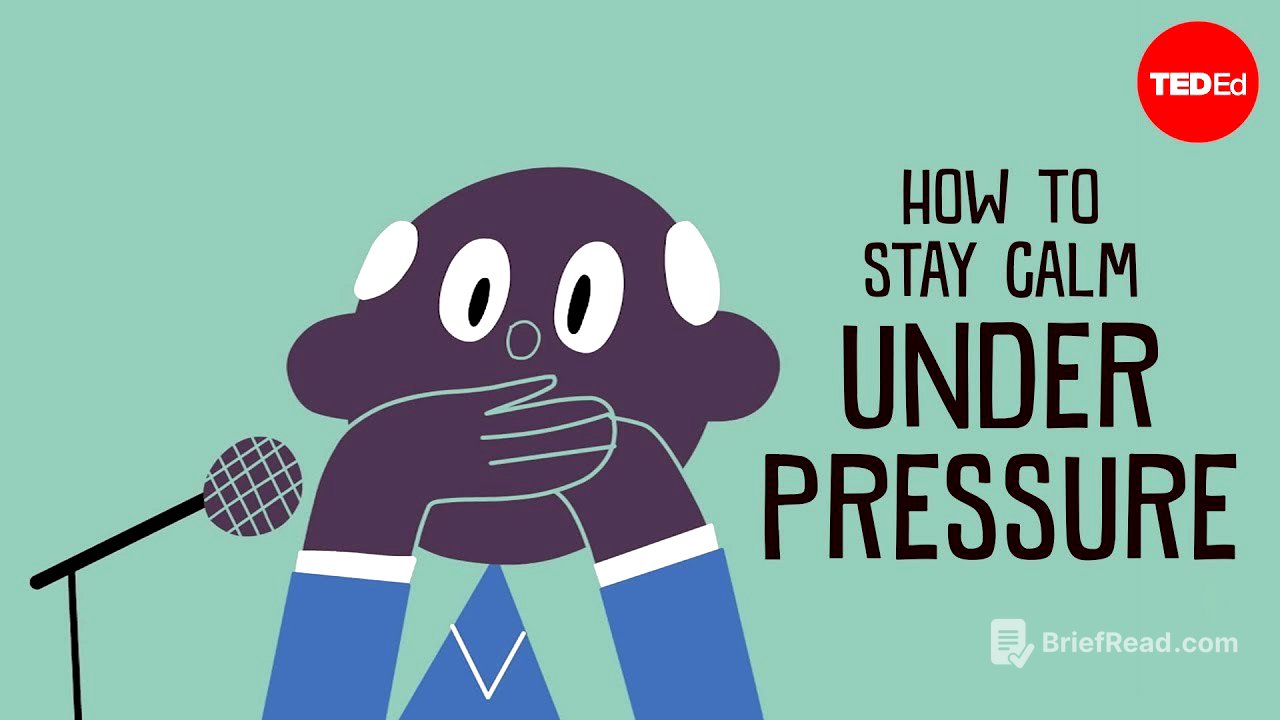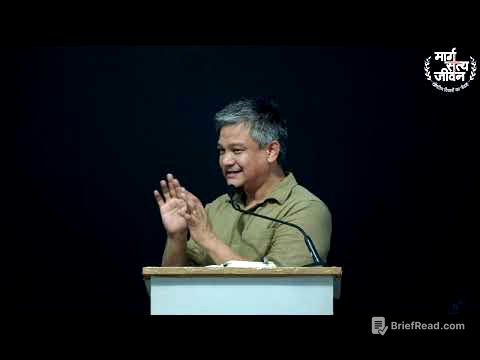TLDR;
This video explains the phenomenon of "choking" under pressure, which causes individuals to fail at crucial moments despite extensive practice. It explores two main sets of theories: distraction theories, which attribute choking to worries and fears diverting attention, and explicit monitoring theories, which suggest overanalyzing a task interferes with automatic skills. The video also identifies factors that make individuals more susceptible to choking and offers strategies to avoid it, such as practicing under stress, developing pre-performance routines, and maintaining an external focus on the ultimate goal.
- Choking under pressure is a common phenomenon affecting athletes, public speakers, and musicians.
- Two main theories explain choking: distraction (worries diverting attention) and explicit monitoring (overanalyzing skills).
- Practicing under stress, using pre-performance routines, and maintaining an external focus can help prevent choking.
The Phenomenon of Choking Under Pressure [0:06]
The video introduces "choking" as the failure to perform at crucial moments despite months or years of practice. This phenomenon is common in sports due to intense pressure and key moments, but it also affects public speakers, spelling bee contestants, and musicians. While many attribute choking to nerves, the video aims to explain why nervousness undermines expert performance.
Distraction Theories [0:54]
Distraction theories suggest that performance suffers when the mind is preoccupied with worries, doubts, or fears, diverting attention from the task. The brain can only process a limited amount of information at once, making tasks that challenge working memory particularly vulnerable to pressure. A study involving university students performing math problems showed that those under stress performed worse on complex, memory-intensive tasks.
Explicit Monitoring Theories [1:52]
Explicit monitoring theories explain choking as a result of overanalyzing a task. Once a skill becomes automatic, consciously thinking about its mechanics can interfere with the ability to perform it. Tasks done unconsciously are most susceptible to this type of choking. A study on golfers showed that those who focused on the mechanics of their putting stroke performed worse than those who focused on accuracy.
Factors Influencing Susceptibility to Choking [2:39]
Research indicates that some individuals are more prone to choking than others, particularly those who are self-conscious, anxious, and afraid of negative judgment. These personality traits can amplify the effects of pressure, leading to impaired performance in high-stakes situations.
Strategies to Avoid Choking [2:52]
To avoid choking, the video suggests practicing under stressful conditions to acclimate to pressure. A study on dart players showed that those who practiced under stress performed better when anxious. Developing pre-performance routines, such as deep breaths or cue words, can also improve consistency and accuracy. Additionally, maintaining an external focus on the ultimate goal, rather than the mechanics of the task, is more effective. A study of golfers showed that focusing on the ball's flight improved performance compared to focusing on arm motion.









![[FULL]💖Emergency Marriage To My Secret Billionaire](https://wm-img.halpindev.com/p-briefread_c-10_b-10/urlb/aHR0cDovL2ltZy55b3V0dWJlLmNvbS92aS9rSUxUMk1aNmt6by9ocWRlZmF1bHQuanBn.jpg)